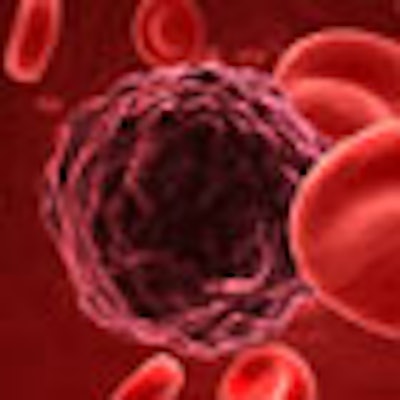
Alcohol consumption causes approximately 20,000 cancer deaths in the U.S. annually, especially oral cavity cancer in men and breast cancer in women, according to a new study in the American Journal of Public Health (February 14, 2013).
It is the first comprehensive analysis of alcohol-attributable cancer deaths in the U.S. in more than 30 years, the study authors noted.
Notably, even moderate drinkers who consume 1.5 drinks daily or fewer accounted for 30% of alcohol-caused cancer deaths, according to researchers from the Boston University School of Medicine and the School of Public Health.
Cancers of the mouth, throat, and esophagus were common causes of alcohol-related cancer deaths among men, resulting in a total of about 6,000 annual deaths, they noted. Breast cancer was the most common cause of alcohol-caused cancer deaths in women, resulting in about 6,000 deaths annually, or about 15% of all breast cancer mortality.
In addition, alcohol was cited as a prominent cause in the premature loss of life, resulting in the loss of about 18 years among people who died of cancers attributed to alcohol, the study found.
Previous research consistently shows that alcohol increases the risk for cancers of the oral cavity and pharynx, larynx, esophagus, and liver. And recent studies show that alcohol also increases the risk of cancers of the colon, rectum, and women's breasts.
While estimates have shown that alcohol accounts for about 4% of all cancer-related deaths worldwide, there is a lack of attention focusing on cancer-related deaths in the U.S., the researchers noted.
3 drinks a day = higher risk
The survey included seven cancers (oral cavity and pharynx, larynx, esophagus, liver, colon, rectum, and female breast) considered to be caused by drinking alcohol. The researchers analyzed results from 7,969 people who responded to a telephone study for a 2009-2010 National Alcohol Survey of people 18 years or older.
Cancers of the oral cavity and pharynx, larynx, and esophagus accounted for 3,790 to 8,395 of alcohol-related deaths among men (53% to 71%); breast cancer accounted for 4,730 to 7,310 of alcohol-attributable deaths among women (56% to 66%), the researchers said.
The risk of alcohol-caused cancer deaths increased the most (48% to 60%) among people who consumed more than three drinks daily (more than 40 grams of alcohol). Moderate drinkers (less than three drinks daily, 20 to 40 grams of alcohol) had fewer alcohol-related deaths (14% to 17%).
But those who drank the lowest amounts -- 1.5 drinks per day -- accounted for 25% to 35% of alcohol-related cancer deaths, more than the moderate drinkers. This was due to the larger number of people who drank lower levels of alcohol, the researchers noted.
"In sum, there is no apparent threshold when it comes to alcohol and cancer risk," the researchers pointed out. "For cancer prevention purposes, this means it is better to drink alcohol at low levels, with the lowest risk involving not drinking at all."
Better cancer prevention strategies needed
The study's estimate that 3.5% of all cancer deaths are alcohol-related was slightly higher than previous estimates of 3% for the U.S. and probably stems from including additional cancers, especially women's breast cancer, the researchers noted.
"Nevertheless, our findings demonstrate there has been little, if any, progress in reducing alcohol-attributable cancer deaths in the United States," they wrote.
The findings confirm previous research that oral cavity and pharyngeal, laryngeal, and esophageal cancers account for the majority of alcohol-related cancer deaths among men, and breast cancer for the majority of such deaths among women, they concluded.
Reducing alcohol consumption is an important and underemphasized cancer prevention strategy that receives surprisingly little attention among public health, medical, cancer, advocacy, and other organizations in the U.S., they added.
They speculated that one reason there has not been more of an effort to lower alcohol use is due to the purported cardiovascular benefits of low-level alcohol consumption, such as news reports about the beneficial effects of red wine.
The study authors urge medical and public health organizations and providers to make "clear and consistent" statements emphasizing that alcohol is a known human carcinogen, there is no safe level of drinking, and that alcohol use should be lowered or avoided to reduce the risk of cancer.



















